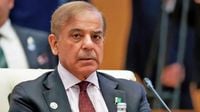Islamabad: Tensions have escalated between India and Pakistan following a series of precision strikes conducted by the Indian Armed Forces on terror camps located in Pakistan and Pakistan-occupied Jammu and Kashmir (PoJK). On May 6, 2025, Pakistan Prime Minister Shehbaz Sharif condemned these actions, referring to them as "cowardly attacks" and asserting that Pakistan would respond with full force.
In a post on the social media platform X, Sharif stated, "The cunning enemy has carried out cowardly attacks on five locations in Pakistan. Pakistan has every right to respond forcefully to this act of war imposed by India, and a forceful response is being given." His comments were made in the wake of 'Operation Sindoor', launched by India, which targeted nine terror-linked locations in response to a devastating terror attack in Pahalgam on April 22 that resulted in the deaths of 26 individuals, including 25 Indian civilians and one Nepali national.
Sharif characterized the Indian military action as a blatant act of aggression, emphasizing that the nation stands united behind its armed forces. He expressed, "The entire nation stands with the Pakistani armed forces, and the morale and spirit of the entire Pakistani nation are high." This statement not only aimed to rally national sentiment but also served as a message to the Indian government regarding Pakistan's resolve.
While Sharif did not specify the exact locations targeted by Indian forces, his remarks marked the first official acknowledgment from Islamabad that multiple sites within Pakistan were indeed struck. He framed the strikes as a serious escalation, declaring that India had crossed a red line and underscoring that Pakistan would respond with strength. "Pakistan has every right to respond forcefully to this act of war imposed by India, and a forceful response is being given," he reiterated, hinting at possible retaliatory measures being prepared.
Sharif's rhetoric reflects the political pressure his government faces at home, particularly with rising public sentiment surrounding national security. The Prime Minister's statements come at a time when the Pakistani leadership is expected to project strength and control over the situation, especially in light of the recent attacks. He stated, "The Pakistani nation and the Pakistani armed forces know how to deal with the enemy. We will never allow the enemy to succeed in their nefarious goals." This sentiment resonates with a populace that is increasingly concerned about security and the implications of cross-border tensions.
On the Indian side, government officials have maintained that Operation Sindoor was a counter-terrorist strike aimed specifically at terror infrastructure in Pakistan and PoJK. They asserted that the operation was a measured response to the Pahalgam terror attack and emphasized that no Pakistani military installations were targeted during the strikes. The Indian Army described the action as "focused, measured, and non-escalatory," aimed solely at terror groups operating from Pakistani soil.
As the situation unfolds, both nations find themselves in a precarious position, with potential repercussions for regional stability. The Indian military's operation has been framed as a necessary step to counter terrorism, while Pakistan's leadership is rallying national unity in the face of perceived aggression. The coming days will be crucial in determining how both countries navigate this heightened tension.
Sharif's strong language and the public backing of the military signal a hardening stance from Pakistan, which may complicate diplomatic efforts moving forward. As both sides continue to exchange statements, the international community watches closely, aware that any miscalculation could lead to further escalation.
In summary, the recent military actions and subsequent political responses highlight the fragile nature of India-Pakistan relations. With both nations asserting their positions, the possibility of further conflict looms, underscoring the need for dialogue and restraint to prevent a broader confrontation.





